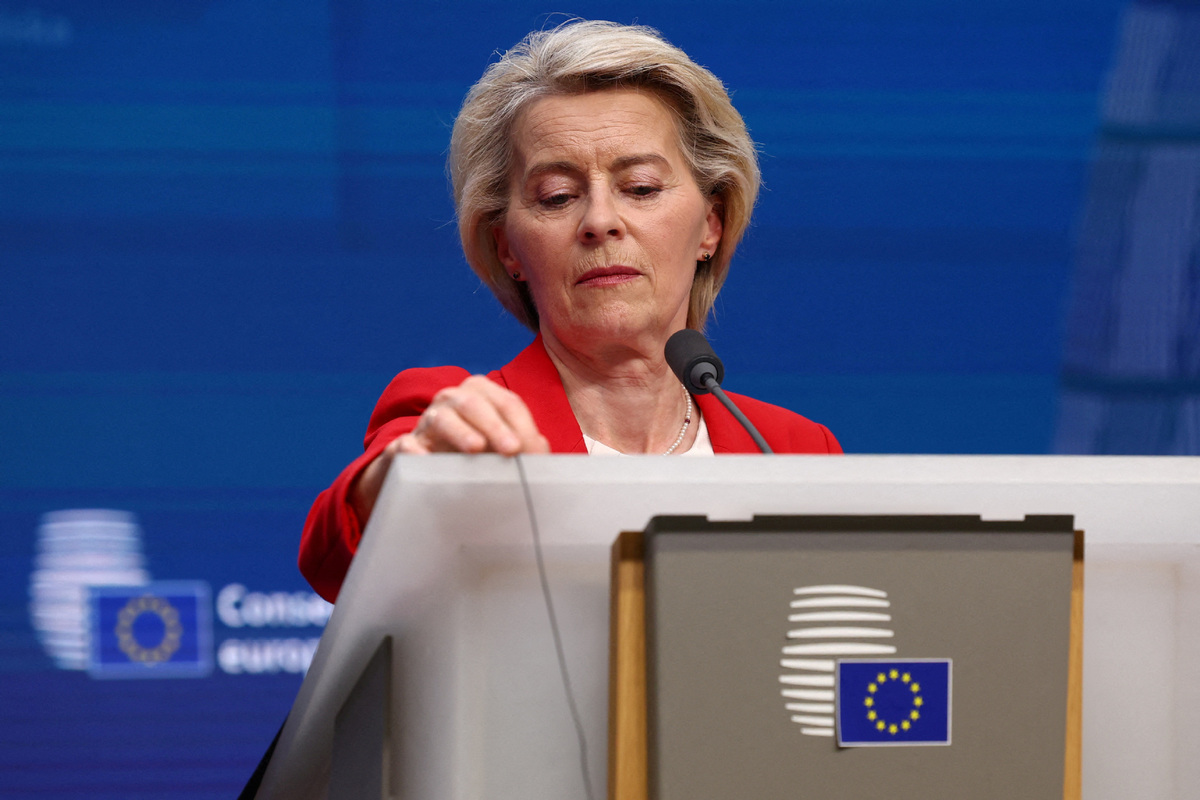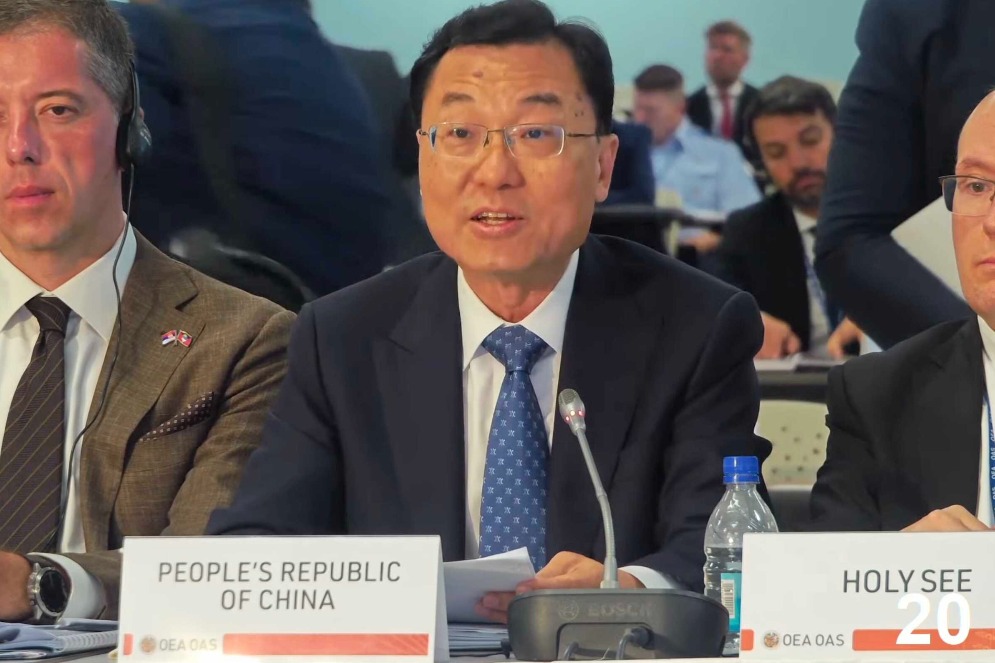EU considers Asia-Pacific partnership to counter US tariffs


International relations analysts and business leaders have welcomed the European Union's consideration of new trade alliances, suggesting it may be a necessary step, as diplomats weigh the choice between accepting a quick United States deal within two weeks or risking a longer trade dispute to secure better terms.
Facing a July 9 deadline from the US to agree on trade terms, the EU is exploring an alliance with Asia-Pacific nations that could reshape global commerce.
As reported by Politico, European Commission President Ursula von der Leyen floated the idea Thursday that the EU's 27 member states could join forces with the 12-member Comprehensive and Progressive Agreement for Trans-Pacific Partnership, or CPTPP, which includes the United Kingdom, to form a new world trade initiative, noting that US participation would not be automatic.
Speaking at the end of an EU leaders' summit in Brussels in the early hours of Friday morning, von der Leyen said such a plan would "show to the world that free trade with a large number of countries is possible on a rules-based foundation."
"This is a project where I think we should really engage on, because CPTPP and the European Union is mighty," she added.
Von der Leyen pointed out that any US role would need joint EU-CPTPP approval, saying: "As far as I understand, the Americans left at a certain point."
EU leaders will make their final decision under significant pressure, according to Jian Junbo, director of the Centre for China-Europe Relations at Fudan University.
"The US is both the biggest investment destination and trade partner of the EU, and the latter just cannot afford to lose the former," he said. "So the EU's cards from the very first moment have been rather limited. It had proposed a zero-tariff policy but that was not what the US wants — instead the latter pursues trade balance that could have only been possible with a major change to bilateral trade structure."
Ireland's Prime Minister Micheal Martin told The Guardian newspaper: "Every effort has to be made to get a landing zone that we can live with. It's not ideal. It's not optimal. Europe doesn't want tariffs, but we have to deal with the situation that is before us."
Cheng Hongliang, a researcher at China Institutes of Contemporary International Relations, said that EU-US relations are complex, with trade being just one area where the US might exert comprehensive pressure.
"At the just-concluded NATO summit in The Hague, European members agreed to raise the defense spending to 5 percent of their GDP, which should be considered a concession to the US," he told China Daily. "But the implementation of that promise will take a rather long time and it will be difficult to reach a long-term agreement."
By the end of Thursday's EU leaders' meeting, there was still no public announcement about whether they would accept US President Donald Trump's terms for a quick deal. According to Cheng, the late-night timing of their eventual decision suggests EU members struggled to reach consensus on the challenging US tariff negotiations.
"In today's increasingly confrontational geopolitical and trade environment, Europe must prioritize unity and strategic autonomy to protect its own interests in the ongoing trade war," Bernard Dewit, chairman of the Belgian-Chinese Chamber of Commerce and senior partner of Dewit Law Office, told China Daily.
"While short-term compromises may ease tensions, the EU could focus on reinforcing its industrial competitiveness and diversifying its partnerships globally-including reinforcing the one with China to reduce dependency and better defend its long-term economic interests."
For Lai Suetyi, a researcher from Hong Kong Special Administrative Region working at the Center for European Studies of Guangdong University of Foreign Studies, said that, at least presently, it's a smart move for the EU, which sees little room to secure an acceptable deal by the deadline early next month. "It tries to take a proactive role instead of being passively bullied by Trump as it has been thus far," she said.
"Instead of following Trump's game of tariff-slapping, the EU now initiates a cooperation with CPTPP. The EU feels more comfortable to play its old game of international rule setting and multilateralism," she told China Daily. "Despite the uncertainty of the result of such initiative, the EU has at least successfully turned the tables to be in a stronger bargaining position against Trump."
zhangzhouxiang@chinadaily.com.cn
































